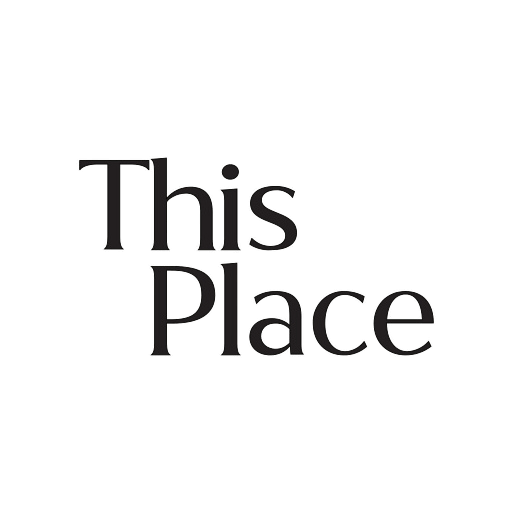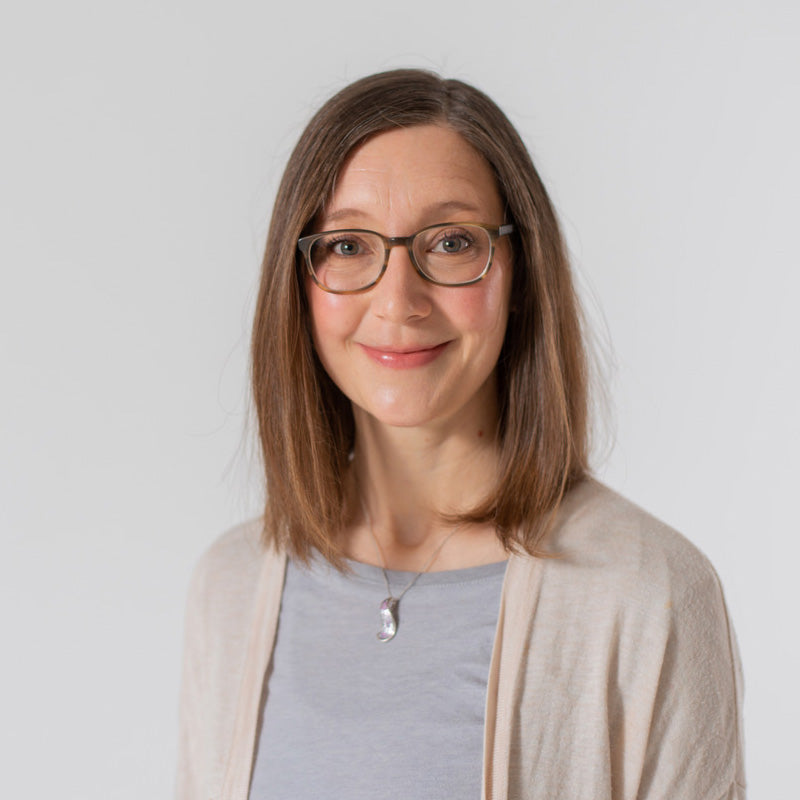When we at This Place talk about our understanding of "The Science of Self Care", it becomes clear that Self Care is a holistic way of life that is equally influenced from the inside and the outside.
While our functional natural cosmetics are effective from the outside, and our self-care rituals do their part to anchor self-care internally, there are a multitude of ways to holistically shape self-care and also health from within.
In the interview with Hannah Pehlgrimm from FEMNA HEALTH, we talk about the interplay of naturopathy, medicine, diagnostics and nutrition. And also about how a holistic view of self-care can look and the role of consumer education.
1. Hannah, please give us an insight into your everyday life at FEMNA HEALTH. What does FEMNA stand for and in which role do you accompany your clients?
FEMNA is a woman-led health start-up with the goal of enabling women with chronic complications to have a better quality of life. We offer virtual access to diagnostics, education and therapeutic support. An integrative approach that combines naturopathy and conventional medicine is particularly important to us.
In our office in Berlin, our team coordinates all processes, our counsellors are located all over Germany and provide virtual support to our clients.
I am the medical director at FEMNA, which means I lead the team of counsellors technically and in terms of content, and I work closely with the founder Maxie Matthiessen in business development and marketing. So I have a lot of variety and am involved in different areas of FEMNA.
2. Like This Place, you also rely on the power of nature. Part of your vision is to promote the exchange between conventional medicine and naturopathy for integrative women's medicine. What exactly does FEMNA mean by integrative women's medicine? And how can naturopathic knowledge strengthen medical approaches?
For us, integrative women's medicine means that a broad spectrum of therapeutic options is available to every woman. If, for example, a conventional therapeutic approach is in the foreground (e.g. antibiotics for cystitis), the woman should also have the opportunity to strengthen the body with naturopathic methods and to rebuild the intestine. If naturopathic methods are primarily used, a thorough laboratory diagnosis can be a great basis for the therapy. The exchange between the different specialists (doctors, alternative practitioners) is also very important to us, so that a truly holistic view of the woman can emerge.
We do not think only in terms of laboratory values or limit ourselves to one naturopathic method, but strive to ensure that the findings from the different disciplines go hand in hand and that the woman always has a choice.
3. Which women’s needs can the interaction of conventional medicine and naturopathy address particularly well?
Many women wish to be perceived with all their facets. For example, in the case of menstrual pain, not only the intensity of the pain should be asked, but also how it is triggered, how it affects her everyday life, etc. In this way, a much more differentiated diagnosis can be made. Furthermore, a much more differentiated picture of her experience of illness can emerge, which also enables truly individualised support. Naturopathy does not only look at a single organ area, but at the interaction of the different organ functions (for example hormones and intestines). The holistic approach enriches the therapy, while laboratory diagnostics and knowledge of pathogens and their conventional treatment are also indispensable.
4. You dedicate yourselves holistically to the topic of female health. What is the status of self-care in women's health these days? With all the mental load, do women manage to think enough about themselves, their own needs and their own empowerment?
Self-care is a very important point for us, which also plays a big role in the consultations. For us, this doesn't just mean a little wellness or relaxation in everyday life, but also setting healthy boundaries and really making yourself and your own health a priority. Especially because a lot is demanded of all of us, be it at work or in the family, this point is particularly important. Many women have not learned this sufficiently. They define themselves a lot by the feedback of others and go beyond their limits far too often. At some point, our bodies let us feel this, for example in the form of exhausted adrenal glands or cycle complaints.
5. What do you see as the role of natural ingredients in maintaining women's health, rebalancing and well-being?
"Natural ingredients" always sounds very nice, but it doesn't say much about whether these ingredients are good for us. Of course, there are also a lot of substances that we don't want in our food or cosmetics. Here it is important that we look carefully at what is contained in the products and also learn to read the technical terms.
It is very important to us in the selection of the preparations we recommend and also in the composition of our micronutrients that the ingredients are of natural origin and, whenever possible, not synthetically produced.
Also, when we talk about nutrition in the consultations, it is important for us to create awareness of where critical substances are contained that can actually have a very strong impact on our health (keyword “plasticisers”).
"It is important to learn to read technical terms."
6. According to the Federal Statistical Office, around 83 million people lived in Germany at the end of 2021. About 42 million of them female and about 41 million male. Why is it that women's health is still a taboo subject in the 21st century, despite all the education?
I don't feel it is so much a taboo subject any more, especially in the last few years a lot has been published on social media about women's health topics, for example menstrual health.
Nevertheless, there is of course still room for improvement. And it is unfortunately not a matter of course that young women know exactly what is going on in their bodies and how they can take good care of themselves. With FEMNA, we want to promote this education.
I think it is always a question of which interest groups are involved in a topic and where the money for education comes from.
Some cosmetic, pharmaceutical or fashion companies are certainly not interested in educating women. A conscious and educated young woman is no longer a blind consumer. There is targeted education by the state, but it does not go very far, as we all know when we remember our school lessons. How important were the topics of body image, positive sexuality, women's health? Everyone can answer this question for themselves.
7. Your holistic view of female health also includes skin diseases like acne. To what extent is women's health reflected in the skin's appearance?
Acne is very often hormonal and occurs, for example, after stopping the pill. Here we can clearly work on the hormonal balance. Intestinal health is also closely linked, as the skin is a kind of valve for the body when other detoxification organs such as the intestines are overloaded. For many women, acne is also a great psychological affliction, here too I find it very important to accompany and strengthen.
"Enlightened young women are no longer blind consumers!"
8. FEMA HEALTH is dedicated to the thematically broad field of hormonal imbalance in women. One of your focal points is menopause. What changes do women notice in their skin and body during this phase? Which changes are perceived as particularly stressful?
The menopause is a huge hormonal upheaval that women experience differently. Some find the change very fluid, others have severe symptoms - both physical and psychological. These can be classic hot flushes, sleep disturbances or vaginal dryness. Many women notice that their skin becomes drier and needs more care. This is not least due to the fact that the oestrogens, which decrease during the menopause, are also responsible for the care and elasticity of the skin.
9. Among other things, you offer micronutrients for skin and hair as food supplements. What are micronutrients and why can it be useful to supplement your diet with them? In your experience, which micronutrients are particularly suitable for sensitive skin, for example with acne or during the menopause?
Micronutrients are actually indispensable in today's lifestyle and the state of our environment if we want to provide our bodies with all the building blocks they need. Depleted soils, highly processed foods, a stressful lifestyle and other environmental factors contribute to our lack of adequate nutrition.
A lack of micronutrients also plays a role in many hormonal imbalances. Therefore, we recommend every woman to take a food supplement that makes sense for her, at least temporarily, in addition to her - naturally still important - healthy diet.
If you have acne or sensitive skin, it is especially important to take selenium and zinc as well as vitamin A, vitamin C, a number of B vitamins, vitamin E and omega-3 fatty acids.
10. How can you tell in counselling if a woman has sensitive skin? Is sensitive skin an issue with which more and more women are turning to FEMNA?
With us, acne is the predominant issue, or a sensitive vaginal mucosa with a tendency to develop vaginosis or yeast infections. Here we work mainly on the hormonal balance and the intestines to strengthen the whole system. In the consultation, the woman tells us about her main problems and through specific questions and laboratory findings we get an overall picture of her state of health. If sensitive skin is an issue, this can very happily be discussed in the consultation and possible causes looked at.
"With acne or sensitive skin, the supply of appropriate micronutrients is particularly important."
11. How can a suitable care ritual complement the balanced intake of relevant nutrients?
Rituals in everyday life are a nice way to pause for a moment from "functioning" and check in with yourself for a moment. I myself love my morning ritual, into which I have also incorporated the intake of my micronutrients, for example, because it connects me with myself and gives me a conscious and positive start to the day. I do something for myself first, before I become reactive and "start to function". It also means I don't have to think about what I need or what's good for me every day - it's just a natural part of my everyday life.
Create your personal holistic self-care rituals inside and out now! With the discount code THISPLACE10 you will receive a 10% discount in the FEMNA shop.

